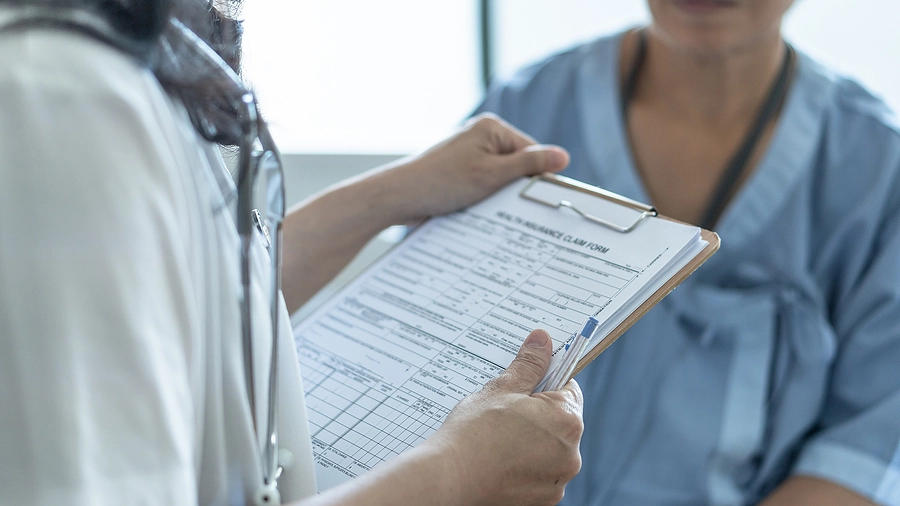The purpose of medical evidence in VA disability claims is to validate the veteran’s eligibility for benefits based on a service-connected condition.
Summary
- Medical evidence is crucial in VA disability claims, helping validate the veteran’s eligibility for benefits based on service-connected conditions.
- Veterans must prove a medical nexus between military service and their condition, showing that in-service events caused or worsened their health issue.
- Acceptable medical evidence includes diagnostic tests, treatment records, and specialists’ opinions, provided by licensed healthcare professionals.
- Medical evidence documents the severity and duration of a condition, influencing a veteran’s VA disability rating.
- Lawyers specializing in VA disability claims can help veterans compile compelling medical evidence, navigate appeals, and improve chances of receiving compensation.
Medical evidence serves as the foundation of strong VA disability claims. Generally, the VA considers medical evidence less subjective, and therefore more reliable, than other forms of documentation. However, there may still be room for interpretation of a veteran’s test results and medical records.
It is often beneficial for veterans to have a VA disability claims attorney guide their appeal, as experienced lawyers can help obtain quality medical evidence of eligibility and identify other sources of documentation to supplement the veteran’s medical records.
At VetLaw, we have a reputation for delivering results for veterans. If you are having difficulty convincing the VA you deserve disability benefits for a service-connected injury or illness, our team is here to help. Don’t hesitate to give us a call at (855) 573-1503 or submit a contact form to schedule a free consultation.
Medical Evidence is Critical to Establishing Eligibility in VA Disability Claims
Assuming that you meet the service requirements to file for VA benefits, presenting compelling medical evidence is the next step in the process of securing disability compensation. The essential components of any VA disability claim must be supported by credible medical evidence.
Veterans Need a Medical Diagnosis to Collect Compensation for Service-Related Illnesses or Injuries
Even if you have a presumptive service-connected condition, you still need to submit a formal medical diagnosis from a licensed healthcare provider to demonstrate you qualify for VA disability benefits. This confirms you’re suffering from a recognized medical condition and that your symptoms are significant enough to warrant a diagnosis.
Many veterans struggle to obtain medical diagnoses for mental conditions, rare presentations of health issues, and conditions with vague symptoms. Keeping thorough medical records can help providers make a differential diagnosis and prove to the VA your diagnosis is accurate.
The VA Relies on Medical Evidence to Establish Disability Ratings
In a veterans disability claim, medical evidence speaks to the duration and severity of symptoms. For many service-related conditions, the VA’s rating schedule stipulates a specific number of episodes a veteran has had within a certain time-frame and what level of treatment they required to assign a percentage to their disability.
Once you have a VA disability rating for your service-related injury or illness, medical records can still be an asset if you appeal. For instance, you may need current medical evidence showing your condition’s deterioration to increase its VA disability rating. Your records can also help set the effective date for your claim so you can maximize back pay benefits.
Proving a Nexus Between Military Service and a Health Condition Requires Medical Evidence
One of the most difficult parts of a VA disability claim to navigate is demonstrating a service connection. Generally, the VA is only obligated to provide compensation for conditions that are directly caused by military service, a consequence of a service-related condition, or aggravated by military service.
Therefore, veterans must show a medical nexus between their military service and their condition. That means you need proof that experiencing an in-service event or condition caused or exacerbated your condition. For example, you would need medical evidence that inhaling toxic fumes from burn pits led you to develop asthma.
Your provider may evaluate the type of debris found in your lungs, check the onset and progression of your symptoms, and conclude there is a causal relationship between the two. You can use their medical opinion to validate your case. A strong medical nexus letter supported by health records is often key in VA disability claims.
Types of Medical Evidence Veterans Can Use in Their VA Disability Claims
Many veterans may be unaware of the range of documentation that can constitute medical evidence in VA disability claims. As long as the test or treatment was conducted by a licensed healthcare provider, veterans can likely add these medical records to VA claim.
Many medical tests have quantifiable benchmarks that providers can use to identify abnormalities, make diagnoses, and recommend treatments. For the VA, relying on medical test results is a way to make the process of assessing disabilities more objective.
Common types of medical evidence the VA accepts in veterans disability claims includes results from:
- Medical imaging, such as X-rays or MRI, CT, and PET scans
- Blood panels
- Hearing or vision tests
- Metabolic Exercise Stress Tests
- Biopsies or endoscopies
In addition to diagnostic evaluations and monitoring, medical evidence can also consist of treatment records, such as:
- Prescription history
- Notes from psychologists or psychiatrists
- Documented use of medical devices, like pacemakers, blood sugar monitors, or wheelchairs
- Treatment records of chemotherapy, surgery, and other procedures
While keeping the process fair by standardizing eligibility criteria is important, it can prevent qualified veterans from accessing the VA disability benefits they deserve. Veterans disability claims often need updated medical test results, an opinion from a specialist, or other types of medical evidence to meet VA standards for compensation.
Alternatively, they may require additional context or support from other sources, such as buddy letters. Our team can help you compile the medical documentation and other substantiating information you need to make a successful appeal to the VA for disability benefits.
Find the Legal Support You Need With the VA Disability Claims Lawyers of VetLaw
When filing an appeal to secure VA disability benefits, you want your claim to be as clear and thorough as possible. VetLaw specializes in crafting persuasive VA appeals for veterans with service-connected disabilities.
Not only are we familiar with the variety of types of medical evidence available, we understand how to leverage it effectively to strengthen VA disability claims. We encourage you to give us a call at (855) 573-1503 or submit a contact form to schedule a free consultation.
Frequently Asked Questions
Does the VA collect its own medical evidence?
In many cases, yes, the VA will collect its own medical evidence to clarify or affirm the facts in a veterans disability claim. Usually, the VA will schedule a C&P exam for a veteran if it requires additional information or confirmation.
A licensed VA provider or VA-approved physician will evaluate the veteran’s condition to determine if their symptoms align with their diagnosis. Additionally, they’ll asses how severe their symptoms are and how likely it is that the condition is service-connected. The provider may request or conduct further testing as a part of the C&P exam.
Can veterans submit medical evidence from private healthcare providers for VA disability claims?
Yes, veterans can present medical evidence from both private healthcare providers and VA providers to support their disability claims. If the VA doubts the validity of private healthcare providers’ medical findings, it may require further testing to determine eligibility.
What is the VA’s evidentiary standard for veterans disability claims?
For the VA to side with a veteran in a disability claim, it must determine that the veteran’s condition was “at least as likely as not” related to their military service. When they review your disability benefits claim, a VA adjudicator will examine the evidence you provide.
If they conclude that there is a 50% or greater chance that your mental or physical condition is service-connected, they will likely recommend that the VA award veterans disability benefits.







